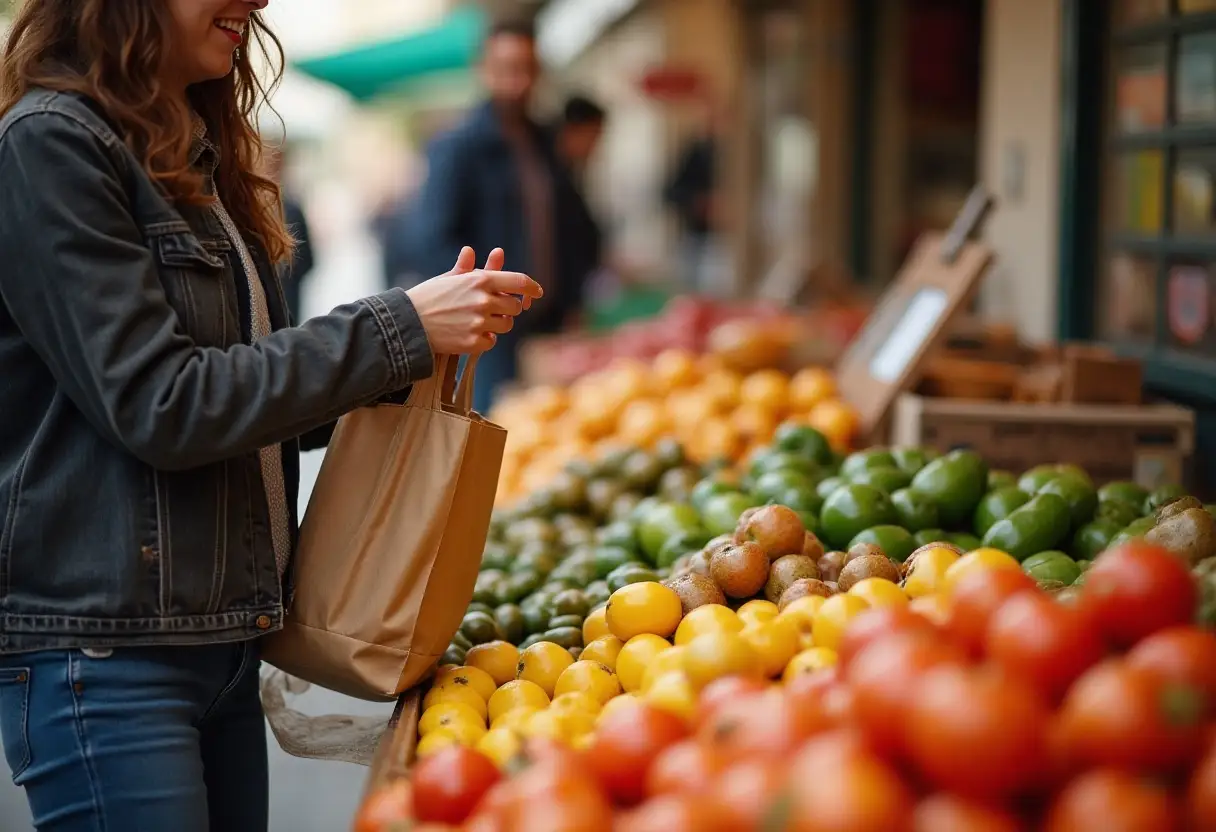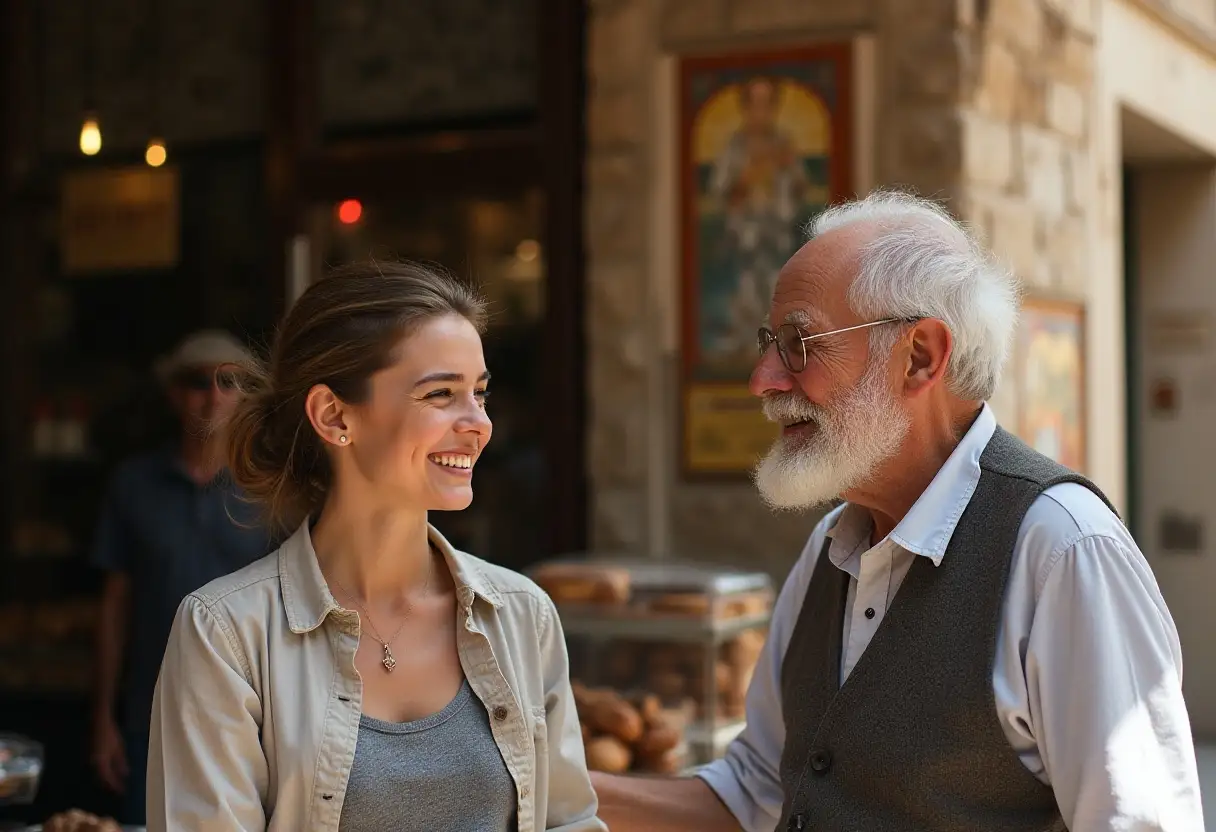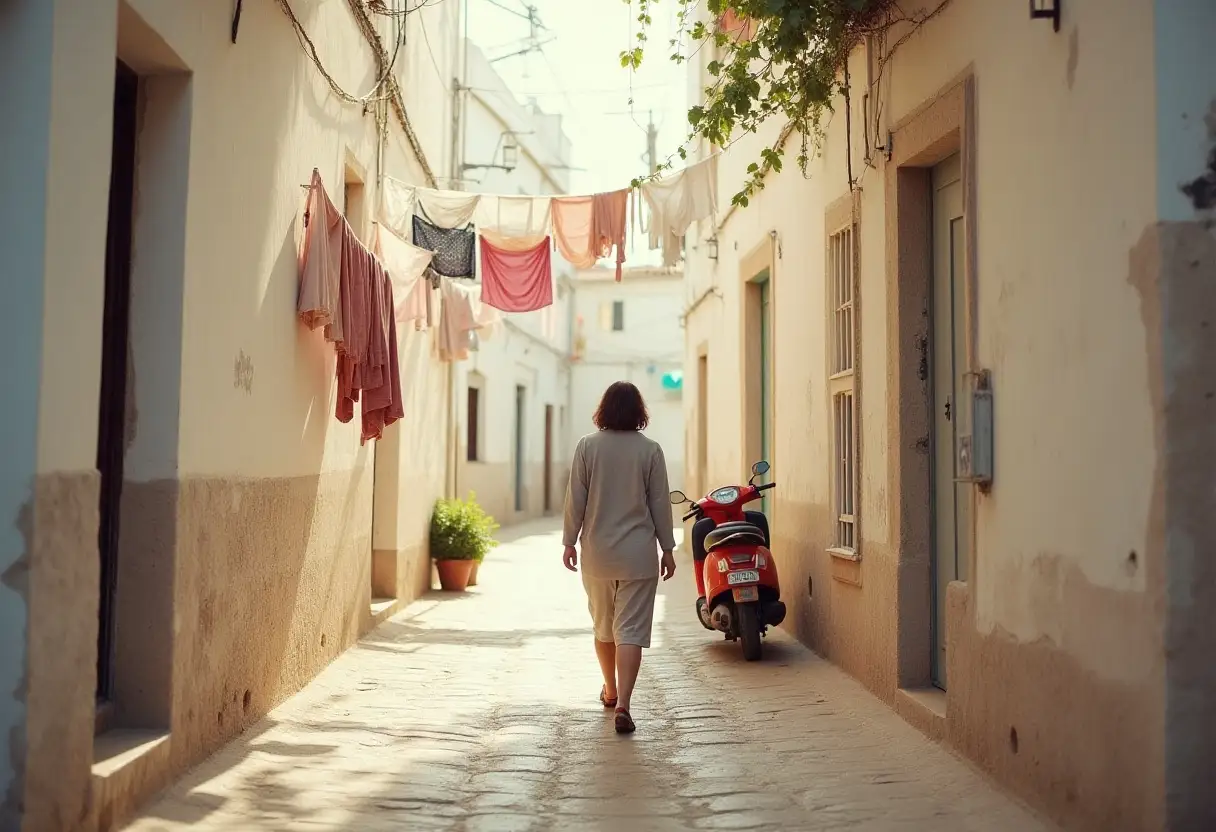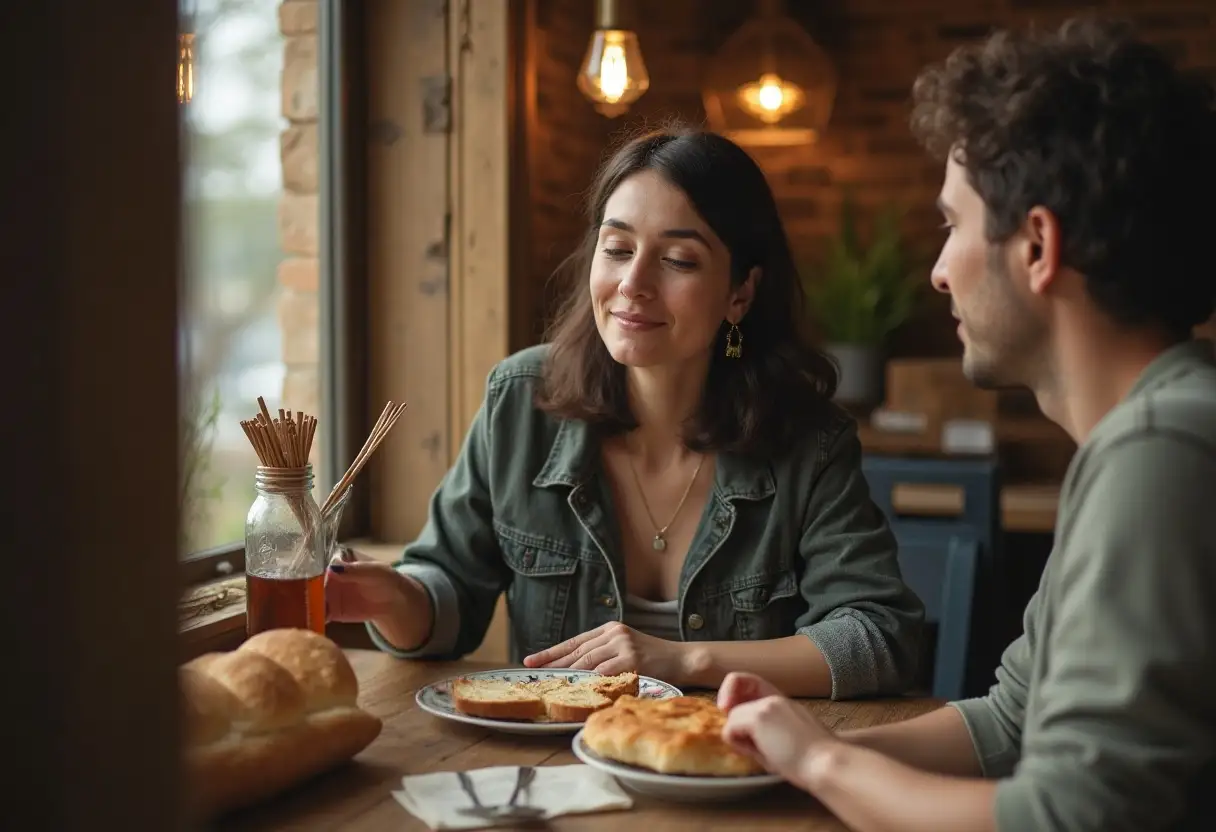
Life abroad doesn’t begin when you land — it begins when you stay. When the rumble of the airplane fades and your new address starts appearing on bills, living abroad shifts from novelty to necessity. The first surprise of life outside tourist postcards is how ordinary it feels. You swap guidebooks for grocery aisles, discover the poetry in daily rhythms, and realize your heartbeat aligns not with famous monuments, but with the hum of neighborhood life.

From the first jet lag to finding your own tempo, abroad life unfolds in phases. Here, days are measured not by landmarks ticked off, but by how your inner rhythm syncs with unfamiliar streets, shaped by a walkable lifestyle that invites you to notice details with every step. In the early days, you measure time by small milestones: the beep of the bus ticket machine, the first confident climb up the subway stairs, and the moment you recognize which cafe lights stay on late. Gradually, you track your life not by monuments, but by repetition— each morning’s street noise and the rhythm of your own steps through these once-strange streets.
Landmarks blur: the bakery smells but the words escape you, bus stops look alike, and maps feel like riddles. At first, every detail requires concentration: recognizing streets, figuring out which way bus doors open, and guessing local etiquette. Over time, these tasks become almost automatic — one morning you navigate a maze-like subway station without a map, and another day you pick the right loaf at the bakery without translating a single word in your head.
Yet each day brings tiny victories: the first time you buy a monthly transit pass without help, the moment you mentally convert a price tag to your home currency and nod at a discounted total, or when you breeze through a café order in the local tongue. These transitions from conscious effort to automatic certainty become quiet triumphs. These small town routines anchor you when everything else drifts, and you begin to carve your own corner of the map.


Your body learns to speak before your tongue does. Eyes become skilled translators, decoding subtle gestures and silent instructions. Hands communicate what words cannot yet express—a pointed finger toward fresh bread, a questioning wave over a menu. You rely on repeated movements and observant glances, gradually shaping an intuitive grammar of your own.
At first, conversations depend heavily on observation: the tilt of someone's head signaling confusion, the quick nod that confirms understanding. Your ears catch repeated phrases and store them for later practice, replaying them silently during quiet walks home. You find yourself instinctively mirroring local gestures—raising eyebrows to show interest, or smiling apologetically when words fail.
Over time, repetition turns into familiarity. Slowly, your gestures, eyes, and ears piece together meanings, bridging the gap between confusion and clarity.
This physical language—rooted in watching, mimicking, and repeating—is emotional adaptation in practice. Each gesture becomes more confident, each misstep less daunting. Without words, you learn to sense, respond, and connect, turning vulnerability into strength and deepening your sense of belonging.
You find yourself wandering to the local market every Saturday morning, stopping by local grocery shops where you now know which cashier smiles back, and opening the window at dawn to drink a glass of water under the chapel’s bells. Over time, These repeated moments weave themselves into a sense of home, turning even mundane tasks into markers of place — helping you truly feel at home abroad.

One morning, the barista greets you by name before you even order. You’re no longer just grabbing coffee at the corner café — you’re settling into a pace that feels like yours. You learn which croissant melts into sweetness without crumbling, how to balance your laptop on a café stool for a quick work session. These daily rituals abroad — that first sip of espresso, the shortcut through a sunlit square, the nod you give to a sleeping alley cat — weave themselves into your sense of place. In these moments, coffee feels like more than just caffeine—it’s a grounding ritual that marks the start of your day.
At first, the people around you were just passersby: unfamiliar figures flickering in the background. But then comes the day when the greengrocer you always shop at gives you a discount, or the neighbor on the landing shares a story about his day while you wait for the elevator together. These small interactions strengthen your sense of belonging and transform the environment from impersonal to personal, creating threads that connect you to the daily life of a new place.

On a rainy Tuesday, the newsagent hands you your usual newspaper without being asked. At dusk, the mail carrier greets you by name and asks about your day. Even the crossing guard pauses longer as you step off the curb, a quiet signal that your face belongs here. In these tactile moments — the weight of a paper in your hand, the gentle click of the guard’s flag lowering for you — you sense a fragile kinship taking root, proof that this place has room for you, if only in these everyday exchanges — a quiet kind of neighborhood recognition that signals you're no longer just passing through.
Behind sun-drenched social media feeds lies a quieter reality. It’s not about hardship, but about effort — the invisible labor of everyday life, and the quiet discipline of intentional travel that values depth over novelty. From mastering the public transit schedule to finding your own therapist — these small actions remind you that true belonging is built through action, day by day.
The simplest errands become expeditions: finding the right adapter for your charger, deciphering garbage pickup days, sorting through bills in a foreign layout. You wrestle with hot summers that never feel as glamorous as postcards, and winters that seem to last an eternity. Yet each solved problem — each successful purchase or correctly paid invoice — becomes a badge of earned progress.
In unfamiliar streets, silence can stretch long between conversations. There are evenings when you return to an empty apartment and the stillness feels like a spotlight on your solitude — especially the first time you see your family’s faces on a video call and your vision blurs with a homesick tremor. Over time, you learn to sit with that quiet: it sharpens your senses and makes you notice the rare laughter shared with another expat in a corner café. This unexpected stillness of being fully visible and entirely alone shapes your resilience.

Living abroad as more than a tourist hinges on more than just excitement; it calls for nimble habits and practical know-how on how to live abroad with presence and purpose—like translating menus on the fly—and a quiet arsenal of rituals and supports: from local sim cards that keep you connected to the language app you consult on night walks, each element weaving into your daily flow before you even notice.

With a flexible income, you sketch out project proposals on a chipped table as warm towels dry under the morning sun, pausing to sip tea between deadline-driven bursts and the soft murmur of your street coming awake. Earning remotely becomes your foundation, and a minimalist lifestyle your guiding principle: one suitcase of belongings, endless backpacks of memories. You learn to budget while abroad — to savor street food over expensive restaurants, to choose secondhand markets over glossy malls. These habits create a foundation for living with intention — a slow lifestyle abroad built not on constant motion, but on meaningful repetition and the calm flow of slow freelance living.
Every day, a simple currency converter smooths out price surprises, expat forums open doors to new apartment leads, and budgeting while abroad becomes second nature with apps that shape your spending habits. Over time, these subtle money-tools blend seamlessly into your routine, making expense tracking feel as effortless and intuitive as flipping on the kettle for your morning coffee — a quiet backbone of the remote lifestyle.
After months of balancing novelty and necessity, you step back and see who you’ve become. You find yourself instinctively greeting neighbors in the local dialect or pausing to join in street celebrations—small acts of assimilation that stitch fragments of the community’s pulse into your own story, creating a sense of partial rootedness, written entirely by your own life.

This isn’t the fleeting wanderlust of short trips. It’s a transformation from stranger to familiar — a rewriting of identity in small, deliberate strokes. You notice how your laughter rings in a new language, how your favorite shopkeeper gestures in ways you understand without translation. You notice the warmth in locals’ greetings and the ease with which you navigate markets and conversations — proof that you’ve shifted from guest to someone who truly belongs.
To live abroad is to discover that home isn’t a place on a map, but a collection of quiet routines, small victories, and human connections. It’s the ability to find comfort in the unfamiliar, to create your own everyday rhythms, and to embrace a no rush kind of life that feels profoundly, unforgettably yours.